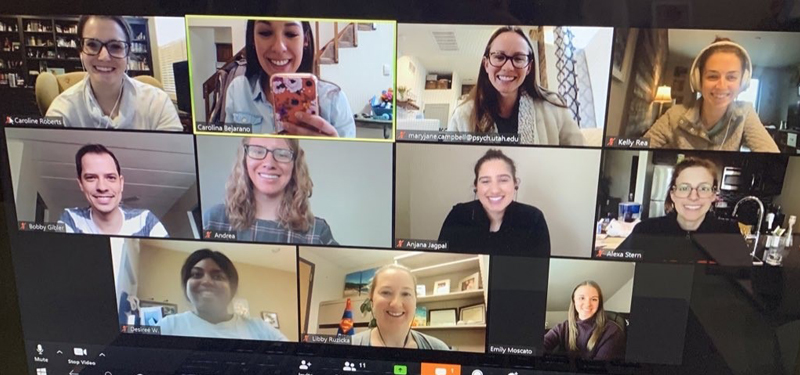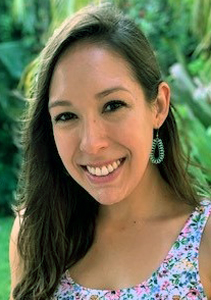
ON THE STUDENT FRONT
 By Carolina M. Bejarano, M.A.
By Carolina M. Bejarano, M.A.
Aligned with the Board of Directors, the SPP Student Advisory Board is committed to growth and improvement pertaining to diversity, equity, inclusion, and social justice. This year we have outlined several goals created to increase access and opportunity within pediatric psychology for students from underrepresented backgrounds and institutions. We are also collaborating with other SPP leaders and APA divisions to better serve students and trainees in these areas. We share some of our progress and plans below in the hopes that the provide opportunities for students and trainees to become involved in these initiatives, as well as provide ideas students may apply to other domains of their training. Additionally, the SAB welcomes any input and new ideas for changes in order to continue to improve these areas. Please reach out to me, Carolina Bejarano at spp.studentrep@gmail.com to communicate further about these efforts.
Adjusting Award Criteria
The Website/Student Spotlight Committee worked to revise the scoring criteria for our graduate and undergraduate Student Spotlight awards. Committee members thoughtfully revised how applications would be evaluated with regard to research and clinical accomplishments, aspects of diversity, and underrepresentation of institutions and training backgrounds. Similarly, adjustments were made in the process of Student Advisory Board applications and selections to make this opportunity more equitable. These adjustments will be carried forward in upcoming years and will be revisited as necessary.
New outreach events
Though our plans changed due to the pandemic, the SAB, MAL for Diversity, and Diversity Committee successfully planned the first outreach service events to be held at SPPAC 2020. These included SPP members signing up to staff a local soup kitchen, as well as present about pediatric psychology at underrepresented institutions. We look forward to the next time we will be able to hold similar programming at SPPAC and APA. In the meantime, plans for virtual presentations and outreach at underrepresented institutions are underway. We will work towards diversifying the pipeline in pediatric psychology by continuing to build upon these efforts.
Increased access to mentoring
The SAB Programming Committee piloted new procedures for sign-up and attendance for the popular SPPAC Mentoring Lunch this year. This occurred as a lottery system rather than a time-limited sign-up to increase access to first-time SPPAC attendees and those newer to SPP. Though the conference lunch could not occur in person, student/mentee groups were assigned and many reported having valuable and enjoyable meetings virtually in the Spring. This revised process will be carried forward next year and also adjusted as needed. Additionally, new plans were made for mentored poster rounds and a mentored coffee break that we hope to implement in the future.
Anti-racism workgroups
The larger Anti-racism workgroup met in June and has organized into 7 subgroups, under the leadership of the SPP MAL for Diversity, Melissa Santos. The groups include a Student-only support and planning group, as well as subgroups focused on areas of Training, Clinical, Research, Institutional, Community, and an Open group. We have been impressed with students’ engagement in these groups and glad to have many involved in this important work. Though there is one student-only group, students are also involved in each of the sub-groups. Initial subgroup meetings are underway with planned coordination with the larger group in the next month.
New ideas and collaborations
We have some additional ideas in the works for the upcoming year. We are collaborating with Division 53 and 37 to plan a virtual policy panel for students, as well as have ideas for a social justice themed (virtual) social. Please look out for updates on the listserv and student listserv for updates regarding new programming. The NCR is also brainstorming new ideas for diversity programming in upcoming semesters. Overall, we remain enthusiastic to continue learning from others’ efforts to improve access to pediatric psychology for all potential trainees (see here for one great example: Lab FAQs)
